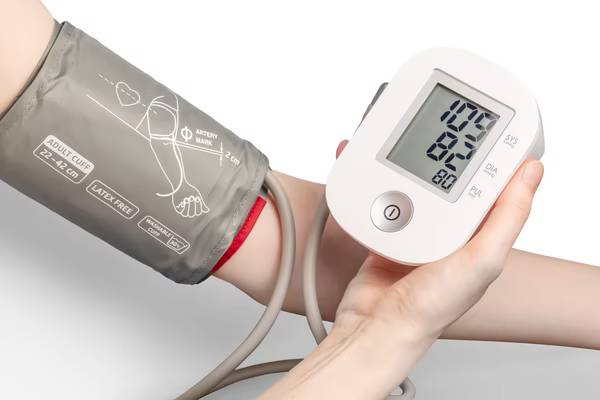How to choose a good blood pressure monitor
When choosing a home tonometer, you need to take into account many nuances, including the age of the user, his state of health, the size of the cuff and others, the doctors said. Gazeta.Ru has found out what to look for when buying a device.
There are three types of blood pressure monitors: mechanical
or manual, semi-mechanical and automatic.

Hand-held blood pressure monitors are considered the most
accurate, but they have one serious drawback that will make it difficult for an
ordinary user to use it at home.
Such blood pressure monitors do not measure blood pressure,
but show its level in the cuff. There should be a doctor nearby who can
correctly measure and record the pressure using a phonendoscope.
Automatic and semi-automatic blood pressure monitors measure
blood pressure themselves and show the result to the user, so they are quite
suitable for everyday home use.
Tonometer cuffs can be of two types: shoulder and wrist. For
regular measurements, it is better to choose the shoulder measurements, as the
wrist measurements may be less accurate. However, they have their own plus -
such a tonometer can be taken with you on trips. In addition, it is suitable
for overweight people who cannot find the right cuff size.
“Unfortunately, the indicators of the wrist devices are not
accurate enough, since their main purpose is to record significant deviations
in blood pressure. When measuring blood pressure, it is important that the cuff
is at the same level as the heart. For wrist models, the position of the cuff
is not at the level of the heart, so the measurement will not be so accurate,
”said Sergei Panov , head of the telemedicine service of the Doctor Ryad
digital medical service, a physician and cardiologist, to Gazeta.Ru .
Tonometers can support dual and triple pressure measurement
technology. They allow you to get the most accurate result. For example, 3Check
[triple measurement] technology automatically takes three measurements in a row
without removing the cuff. The device analyzes all three results and gives
final readings.
Age and health
Elina Sharifullina, Chief Researcher of the Ornament
Preventive Medicine Application, noted that the age of the user should be taken
into account when choosing a tonometer.
“For an elderly person who measures his own blood pressure,
it is better to choose electronic automatic blood pressure monitors. But it's
important to remember that they are ultra-sensitive and react to movement,
clothing interference, and so on. It is also better not to use a tonometer on
the wrist after 50 years, since the arteries on the hand are not so sensitive
and elastic, and errors in the readings are likely to be possible. A
in people with severe vascular atherosclerosis, wrist
tonometers are generally useless, ”Sharifullina said.
Users with high blood pressure should be especially careful
when choosing a tonometer.
“It is better to choose an automatic tonometer with a switch
that sets the maximum possible measured pressure: from 200 to 240. Since if a
person's pressure is higher than the capabilities of the tonometer, he will
reset the data. And if you set the maximum allowable value - 240, then the
pressure will be calculated correctly. This does not apply to mechanical blood
pressure monitors, ”explained Alevtina Fedina, therapist and medical director
of the Checkme health management service.
Additional features
Some blood pressure monitors have additional functions, for
example, they can show the heart rate. In addition, electronic models can
memorize the results of the last measurements. This is important if the user
needs to monitor their condition on a daily basis.
Also, the tonometer can save the results of two users
separately. In addition, there are models with voice prompts. They may be
suitable for older people who have vision problems.


